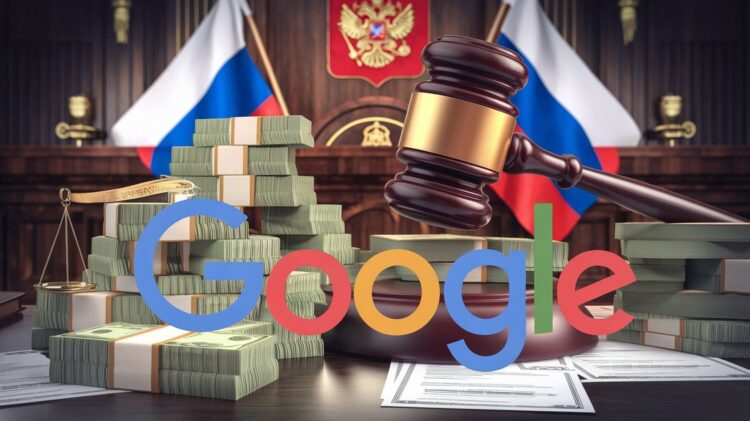A Russian court has ordered Google to pay an eye-watering $20 billion fine—an astonishingly huge amount that trumps everything on Earth. The heavy fine Google must pay because it blocked Russian media outlets from YouTube has sparked tensions between Moscow and the Silicon Valley titan.
The sum itself is impossible for Google actually to pay. Still, the fine is part of a bigger clash between Google’s global platform policies and Russia’s control of its media space.

Google fined a staggering $20 decillion in Russia amid ongoing legal disputes
The problem started in 2020 when the ultra-nationalist Russian channel Tsargrad was banned by YouTube, which is owned by Google after its proprietor targeted it with U.S. sanctions. It got worse after Russia’s illegal invasion of Ukraine in 2022 when it expelled more Russian state-run channels, including Zvezda, from the platform. That brings the total to 17 stations now suing Google so their accounts can be restored. However, Google has argued that Russian authorities violated Google’s rights to free expression and name recognition.
Google instead stood by its decision and turned a deaf ear, and Russian courts made Google liable to pay daily fines. The fines were set at 100,000 rubles ($1,025) per day in the first place before doubling each week to accrue into the tens of millions of dollars, with interest. That’s $20 decillion, so big that the World Bank reckons the figure is several hundred times greater than the global GDP. And the court ruled that this unpayable debt to the plaintiffs is owed to Google.
Nonetheless, Google’s troubles didn’t stop with monetary penalties. In 2022, Russian authorities have frozen Google’s Russian bank accounts and declared that Google’s local operations were bankrupt. By now, Google’s presence in the country has been nearly non-existent for over two years, with its Russian offices closed and many employees laid off or relocated.

Are both sides at fault?
On the one hand, Russia’s heavyhanded approach to controlling its media space has resulted in extreme censorship, regulations cracking under pressure, and tech companies being forced into impossible situations. In contrast, Google has come under the wrath of politics, choosing between local laws and global policies. But critics say Russia’s relentless legal assault on the tech giant is a politically motivated attempt to compel the company to cave to state interests.
While Google is not entirely blameless, it also helped by blocking channels in the ongoing media war between state-controlled outlets and independent platforms. Because the company is dominant globally, it often must make difficult choices when navigating authoritarian regime policies. For example, in this case, its alignment with Western sanctions was bound to alienate the Kremlin.
What happens next for Google in Russia?
Since the fine is well beyond the company’s means to pay, Google is unlikely to hand over any dough. Instead, Russia will fight to seize Google’s global assets — if possible — in international courts. The efforts so far have achieved little success, and Google’s lawyers have yet to bow to the fine’s true financial impact on the company. As Alphabet, Google’s parent company, mentioned in a recent earnings statement: “We do not believe these ongoing legal matters will have a material adverse effect.”
While the fine may be a headline-grabbing stunt, the underlying issue remains: With that future in Russia up in the air, Google is unsure of its role. It’s hard to see relations getting much better when the tech giant snubbed the country by almost effectively pulling out. In the short term, Google’s exit leaves a big empty hole in Russia’s digital landscape, giving state platforms even more influential power.
The story of Russia and Google reminds us of the growing chasm between global tech companies and authoritarian governments. Although the tech giant hasn’t been shaken by Russia’s unprecedented fine yet, its presence in the country is nearly at its end. The real question is: Will other tech companies roll over and play dead, or will they find a way to adapt to the state’s tightening grip on their markets, like Russia? Only time will tell.
Image credits: Furkan Demirkaya/Ideogram





